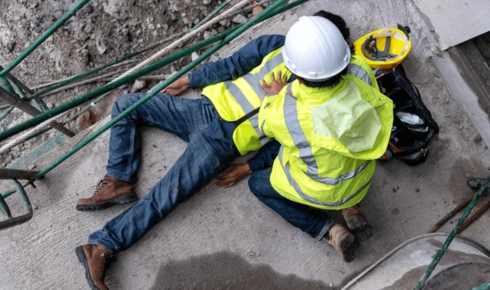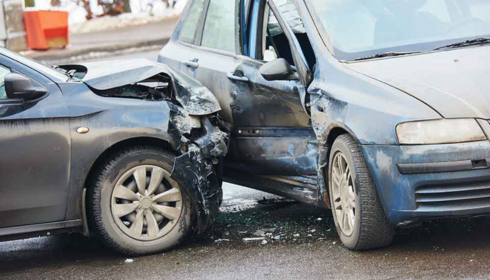Yes, families often need a car accident lawyer after a fatal crash in Minneapolis. Wrongful death cases involve complex state laws, strict filing deadlines, and multiple insurance carriers that may attempt to reduce liability. A top car accident lawyer near Minneapolis helps families understand Minnesota’s wrongful death statutes, file claims correctly, and protect their rights during negotiations. Without legal guidance, families risk missing deadlines or accepting settlements that fail to cover medical expenses, funeral costs, or long-term financial needs.
A Minneapolis car accident lawyer also provides compassionate support while handling the legal process. They investigate the crash, gather evidence, consult experts, and calculate both economic and non-economic damages. Whether negotiating with insurers or pursuing a wrongful death lawsuit in court, an attorney ensures families pursue full and fair compensation. This professional guidance allows grieving relatives to focus on healing while still seeking justice and accountability for their devastating loss.
What Steps Should Families Take After a Fatal Car Accident in Minneapolis?
After a fatal crash, families must focus on both emotional healing and protecting legal rights. The aftermath involves complex procedures, from official police investigations to potential insurance disputes. Families who take timely steps can strengthen their case while reducing delays in compensation. Legal guidance during this process ensures that crucial evidence is preserved, deadlines are met, and claims are pursued effectively in accordance with Minnesota law. By acting early, surviving relatives protect both their future and their ability to recover damages.
1. Report the Accident
Fatal crashes in Minnesota must be reported immediately to law enforcement authorities. A police report becomes a vital document that contains accident details, traffic violations, and preliminary findings regarding negligence. This record serves as the foundation for future legal claims, making it critical to request and preserve it. Families should ensure a copy is obtained quickly. Police involvement not only supports the legal process but also provides an unbiased official account of what happened, which can be indispensable during insurance negotiations or courtroom proceedings later on.
2. Ensure Medical and Emergency Care
Survivors of fatal crashes may require urgent medical attention, even if injuries initially appear minor. Some complications, including concussions or internal bleeding, may not be obvious right away. Immediate treatment not only protects victims’ health but also creates essential medical documentation for future claims. Records from doctors, hospitals, and emergency responders establish a clear timeline of the injuries and care provided. These documents strengthen legal arguments about the severity of harm suffered in the crash and demonstrate how negligence directly caused damages that continue to affect the family.
3. Collect Evidence at the Scene
Evidence gathered immediately after a fatal crash helps establish liability and protect legal claims. Families or representatives should photograph the vehicles, roadway conditions, weather, and the surrounding area. Witness names, contact details, and recorded statements should also be preserved for future reference. Additionally, the at-fault driver’s license, registration, and insurance details must be secured. This information provides attorneys with powerful tools for accident reconstruction and courtroom presentation. Comprehensive evidence not only strengthens the wrongful death case but also counters attempts by insurance companies to minimize responsibility or reduce compensation owed to grieving families.
4. Maintain Detailed Records
Keeping detailed records of accident-related expenses is essential in a wrongful death claim. These may include medical bills, funeral invoices, lost income documentation, and property repair costs. Families should also preserve receipts for travel, counseling, and other expenses linked to the crash. Beyond financial records, journaling emotional struggles and documenting the impact of the loss can illustrate non-economic damages. Organized records create a clear financial picture of how the death has disrupted the family. This information allows a Minneapolis wrongful death lawyer to pursue maximum compensation that reflects both economic and emotional losses.
5. Understand Minnesota’s Wrongful Death Laws
Wrongful death laws in Minnesota are unique and strictly applied. Only a court-appointed trustee may file the claim, doing so on behalf of the surviving family members, such as spouses, children, parents, or siblings. Damages may include funeral costs, medical bills, lost wages, and loss of companionship. The emotional suffering of survivors may also be compensated. Understanding these laws helps families set realistic expectations about available remedies. An attorney ensures compliance with Minnesota’s statutory requirements while protecting the family’s rights. Without proper legal guidance, families risk errors that could limit or even prevent recovery altogether.
6. File a Wrongful Death Claim
Filing a wrongful death lawsuit involves presenting detailed evidence to prove negligence and damages. The trustee must submit legal documents, provide medical records, police reports, and witness testimony, and demonstrate liability. Attorneys often work with accident reconstruction experts to show precisely how the crash occurred. This process requires thorough preparation and persistence, particularly when insurance companies dispute liability. The wrongful death claim can result in either a negotiated settlement or a court judgment. Either outcome aims to provide compensation for financial losses, emotional harm, and the lifelong impact caused by the wrongful and preventable death of a loved one.
7. Pre-Trial Negotiations and Court Proceedings
Before trial, most wrongful death cases enter settlement negotiations. Attorneys present evidence, calculate damages, and seek fair compensation through mediation or arbitration. If insurers refuse to pay adequately, the case may proceed to trial. In court, attorneys present evidence, cross-examine witnesses, and rely on expert testimony to establish liability. A judge or jury then determines responsibility and awards damages. While settlements can spare families lengthy proceedings, trials may be necessary for justice. An experienced Minneapolis car accident lawyer strikes a balance between negotiation and trial readiness, ensuring the family’s best interests are protected at every stage of the legal process.
8. Be Mindful of Deadlines
Minnesota law enforces strict deadlines for wrongful death claims. Generally, families must file within three years of the date of death. Failing to meet this statute of limitations can permanently bar compensation, regardless of the strength of the evidence. Timely legal action ensures sufficient preparation for investigation, evidence collection, and the submission of claims. Deadlines protect both sides, but for families, they represent a sense of urgency. Consulting a lawyer soon after the accident safeguards rights, preserves essential documentation, and prevents the family from losing their chance to seek justice and financial relief in such an emotionally devastating situation.
What Are the Legal Grounds for a Wrongful Death Claim After a Fatal Crash?
Families may pursue a wrongful death lawsuit when a fatal crash results from another party’s negligence. Common legal grounds include reckless driving, intoxication, distracted driving, or mechanical failures caused by poor vehicle maintenance. In cases involving commercial vehicles, employers may also be held liable for negligent hiring, training, or supervision practices. Product liability can arise if a defective auto part causes or contributes to the accident. These claims establish that a duty of care was breached, directly leading to the fatal outcome. Proving negligence is the foundation of recovering damages in a wrongful death case.
How Does Insurance Coverage Impact a Fatal Crash Case?
Insurance coverage plays a crucial role in wrongful death compensation. In Minnesota, drivers must carry minimum liability insurance, but coverage limits are often inadequate when lives are lost. Families may need to pursue additional claims against commercial policies, umbrella coverage, or uninsured/underinsured motorist policies.
A skilled lawyer can identify all possible insurance sources and prevent insurers from undervaluing claims. Insurance disputes often involve lengthy investigations, liability denials, and attempts to minimize payouts. Strong legal representation ensures that families maximize available coverage and receive fair financial relief for the profound losses caused by a fatal crash.
What Evidence Strengthens a Wrongful Death Case in Minneapolis?
The strength of a wrongful death case depends heavily on the preservation of evidence. Essential materials include police reports, medical records, and death certificates, which confirm cause and circumstances of death. Witness statements provide independent accounts, while photos or videos show crash scenes, damage, and injuries.
Financial documents, such as pay stubs and tax returns, establish lost income and economic contributions. Attorneys may also gather expert testimony from accident reconstruction specialists and medical professionals. Each piece of evidence helps demonstrate negligence, causation, and damages. When carefully presented, this evidence provides families with the strongest possible foundation for their wrongful death claim.
How Can a Minneapolis Car Accident Lawyer Help Families After a Fatal Crash?
Families navigating wrongful death claims often face overwhelming grief and financial strain. A skilled lawyer manages the legal process, allowing survivors to focus on healing. Attorneys investigate the crash, consult experts, gather evidence, and calculate damages. They negotiate aggressively with insurers that often attempt to undervalue claims. If settlement is impossible, lawyers represent families at trial. Beyond legal services, attorneys provide compassion, guidance, and clarity during a painful time. Their role is not just to pursue compensation, but also to secure accountability for preventable tragedies, ensuring surviving family members receive both justice and financial stability.
What Factors Determine Compensation in a Fatal Crash Case?
Compensation in wrongful death claims depends on both economic and non-economic damages. Economic damages cover medical expenses, funeral costs, lost income, and benefits the deceased would have provided. Non-economic damages compensate for emotional suffering, loss of companionship, and guidance.
Minnesota courts determine damages based on what is “fair and just” under the circumstances. The severity of negligence, life expectancy of the deceased, and the financial impact on dependents all influence award amounts. By carefully presenting evidence of both tangible and intangible losses, a lawyer ensures families receive compensation that truly reflects their immeasurable loss.
FAQs
Can Families Settle a Wrongful Death Case Outside of Court?
Yes. Many wrongful death cases in Minneapolis are resolved through settlements with insurance companies. Settling outside of court helps families avoid lengthy trials while still receiving compensation. Negotiated agreements can cover medical bills, funeral expenses, and emotional damages, eliminating the need for courtroom litigation.
Who Can File a Wrongful Death Claim in Minnesota?
Under Minnesota law, only a court-appointed trustee can file a wrongful death claim. This trustee represents eligible family members, including spouses, children, parents, and siblings. The trustee ensures that damages are distributed fairly among survivors in accordance with state statutes and guidelines.
How Long Do Families Have to File a Wrongful Death Claim?
Minnesota law provides families three years from the date of death to file a wrongful death claim. This statute of limitations is strict, and missing the deadline can result in permanent bar to compensation. Acting quickly ensures evidence is preserved and legal rights protected.
Can Families Pursue Compensation If the Deceased Was Partially at Fault?
Yes. Minnesota follows comparative fault rules, allowing families to recover damages if the deceased was less than 50% at fault. However, compensation is reduced according to the percentage of fault. Skilled legal representation helps minimize fault assignments and maximize recovery.
What Damages Are Available in a Minneapolis Wrongful Death Case?
Damages in wrongful death claims may include medical expenses, funeral costs, lost income, and loss of companionship. Families may also recover compensation for emotional suffering caused by the death. Courts calculate both financial and non-financial losses to award fair and just damages.
Take the Next Step Toward Justice for Your Family
The aftermath of a fatal crash leaves families with overwhelming grief and uncertainty. Medical bills, funeral costs, and the sudden loss of financial support can create lasting challenges. Insurance companies often attempt to minimize payouts, leaving survivors with far less than they deserve. Navigating Minnesota’s wrongful death laws alone can be intimidating and may put your family’s rights at risk. Having trusted legal support ensures deadlines are met, evidence is preserved, and no opportunity for rightful compensation is overlooked.
Working with a skilled Minneapolis car accident lawyer allows your family to focus on healing while an experienced advocate handles the legal process. From investigating the crash to negotiating with insurers and pursuing litigation if necessary, an attorney fights for full and fair compensation. This support not only helps secure financial stability but also brings accountability to those responsible. When justice and closure matter most, legal guidance can provide both strength and peace of mind during such a difficult time.




